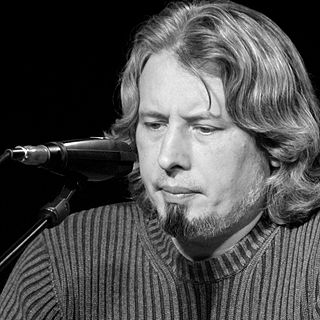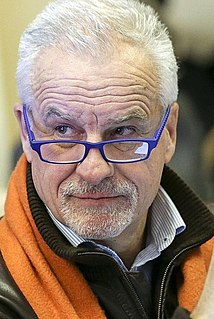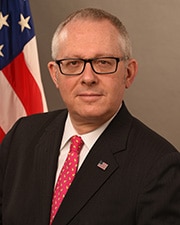A Quote by Aleksandr Solzhenitsyn
Boris Yeltsin's period was characterized by a no less irresponsible attitude to people's lives, but in other ways. In his haste to have private rather than state ownership as quickly as possible, Yeltsin started a mass, multi-billion-dollar fire sale of the national patrimony. Wanting to gain the support of regional leaders, Yeltsin called directly for separatism and passed laws that encouraged and empowered the collapse of the Russian state. This deprived Russia of its historical role for which it had worked so hard, and lowered its standing in the international community.
Quote Topics
Attitude
Billion
Collapse
Community
Deprived
Directly
Dollar
Empowered
Encouraged
Fire
Gain
Had
Hard
Haste
His
Historical
International
International Community
Irresponsible
Laws
Leaders
Less
Lives
Mass
National
National Community
Other
Ownership
Passed
Patrimony
People
Period
Possible
Private
Quickly
Rather
Regional
Role
Russia
Russian
Sale
Standing
Started
State
Support
Than
Wanting
Ways
Which
Worked
Related Quotes
President Yeltsin's instincts were decent: he encouraged the marketplace, the press flourished, and everything started to open - even the KGB archives. Yeltsin reburied Nicholas II. Free from Soviet anti-semitism, he surrounded himself with Jewish capitalists and advisers who returned to public life for the first time since the 1920s.
The mistake we make with many people - not just Russia - is that we believe we have the model, and there is a sort of a condescension in our dialogue with other societies, which was especially painful in several administrations to Russia. I think in Russia, the Yeltsin period is not considered a period of great achievement, but a period of corruption and humiliation.
With Yeltsin, the Soviet Union broke apart, the country was totally mismanaged, the constitution was not respected by the regions of Russia. The army, education and health systems collapsed. People in the West quietly applauded, dancing with and around Yeltsin. I conclude therefore that we should not pay too much attention to what the West is saying.
Gorbachev's administration was amazingly politically naïve, inexperienced and irresponsible towards the country. It was not governance but a thoughtless renunciation of power. The admiration of the West in return only strengthened his conviction that his approach was right. But let us be clear that it was Mikhail Gorbachev, and not Boris Yeltsin, as is now widely being claimed, who first gave freedom of speech and movement to the citizens of Russia.
The Kremlin said Yeltsin was committed to the deal, however. President Yeltsin states clearly and unequivocally that he is an initiator of the unification of the two fraternal states and their peoples, a consistent and firm supporter of it, ... It is a geopolitical necessity and an economic reality.
The attitude of the West and of Russia towards a crisis like Ukraine is diametrically different. The West is trying to establish the legality of any established border. For Russia, Ukraine is part of the Russian patrimony. A Russian state was created around Kiev about 1,200 years ago. Ukraine itself has been part of Russia for 500 years, and I would say most Russians consider it part of Russian patrimony. The ideal solution would be to have a Ukraine like Finland or Austria that can be a bridge between these two rather than an outpost.
There is state-run television in Russia, which is more loyal to the state, as it always is with state television in any country. We have private owned networks; some of them are oppositional. We have thousands of regional networks that, in their regions, are more watched than the so-called federal stations.
Russia, despite its heavy flirtation with capitalism and some quite unsavory oligarchs, is still building its foreign policy on the Soviet ideals of internationalism, solidarity and logic. And even domestically, President [Vladin]Putin is slowly, step-by-step, restoring many important Soviet achievements that were torpedoed by a nitwit, and one gangster - [Mikhail] Gorbachev and [Boris] Yeltsin.
One hundred and fifty years ago the vacant lands of the West were opened to private use. One hundred years ago the Congress passed the Homestead Act, probably the single greatest stimulus to national development ever enacted. Under the impetus of that Act and other laws, more than 1.1 billion acres of the original public main have been transferred to private and non-federal public ownership. The 768 million acres remaining in federal ownership are a valuable national asset.
Nixon urged Clinton to maintain his relationship with Yeltsin but make contact with other democrats in Russia. He warned Clinton away from some ultranationalists and toward those interested in liberty and reform. He pressed Clinton to replace his ambassador in Kiev and concentrate future U.S. economic aid on Ukraine, where it would matter most.
The Russian myth that they broadcast to the world, and have their various surrogates in the West repeat, is that somehow the West took advantage of them, that we were mean to them. That writes out of history everything Strobe Talbott and Bill Clinton tried to do with Boris Yeltsin. Strobe Talbott leaned forward doing everything he could to help the Russians, and frankly, I have little patience for the notion that we gave them nothing but bad advice.



































